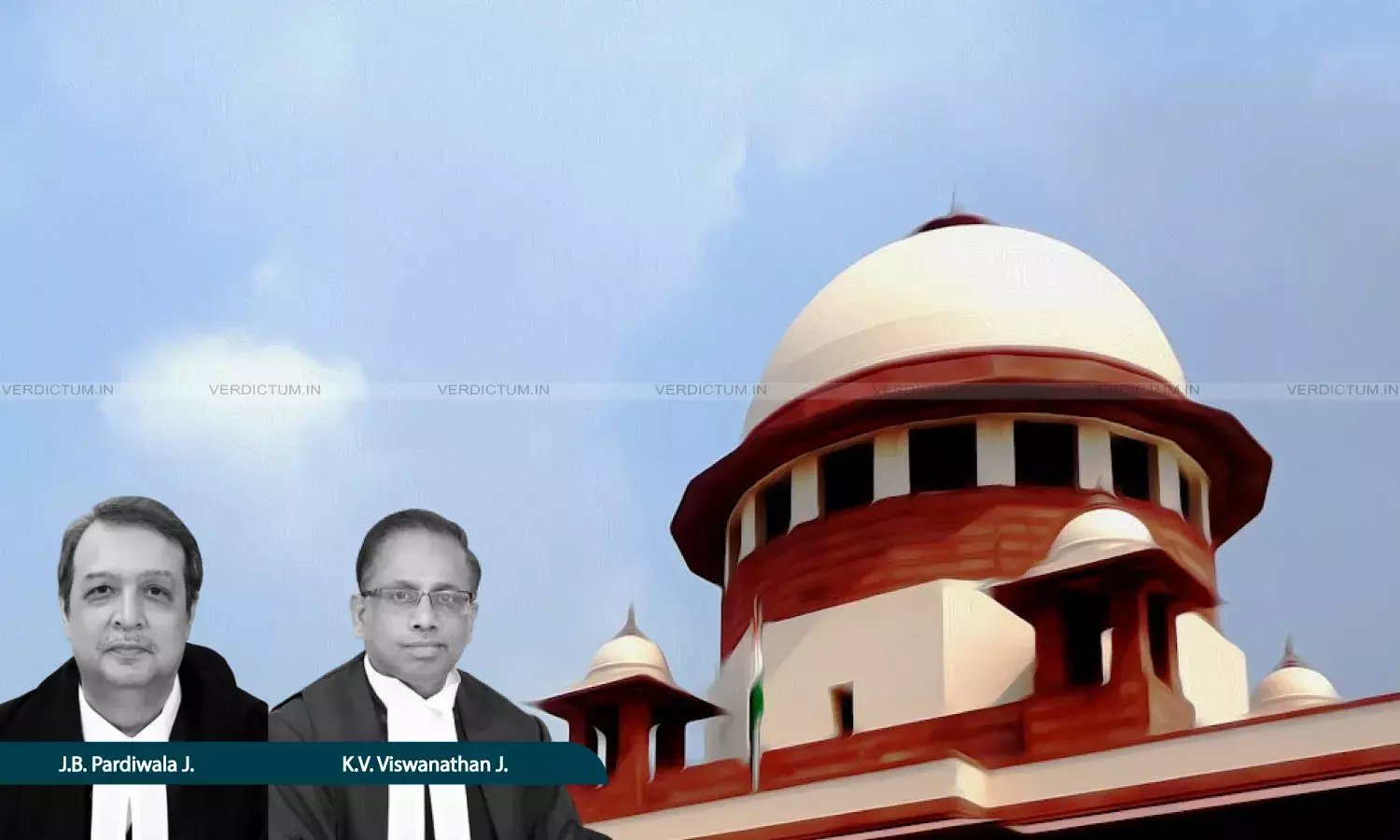Assignment Of Decree For Specific Performance Does Not Require Registration As It Does Not Create Any Right Or Interest In Immovable Property: Supreme Court
The Apex Court held that when a decree for specific performance does not create or purport to create any right, title or interest in immovable property, an instrument assigning such a decree does not attract compulsory registration.

Justice J.B. Pardiwala, Justice K.V. Viswanathan, Supreme Court
The Supreme Court has held that an assignment of a decree for specific performance does not require registration under Section 17(1)(e) of the Registration Act, observing that the decree does not create any right, title or interest in the property.
The Apex Court was hearing an appeal arising out of execution proceedings where an objection was raised that the deed of assignment was invalid for want of registration. The Executing Court had upheld the objection, but the High Court reversed that view.
A Bench comprising Justice J.B. Pardiwala and Justice K.V. Viswanathan, upon adjudicating the matter, held that Section 17 of the Registration Act, 1908, provides that “registration is mandatory only for non-testamentary instruments transferring or assigning any decree or order of a Court or any award when such decree or order or award purports or operates to create, declare, assign, limit or extinguish, whether in present or in future, any right, title or interest, whether vested or contingent, of the value of one hundred rupees and upwards, to or in immovable property”.
The Bench, accordingly, clarified that “when the decree itself which is for specific performance does not create or purport to create any right, title or interest in any immovable property, the question of registering an instrument assigning such a decree cannot arise”.
Senior Advocate Jayanth Muth Raj represented the petitioner, while Advocate R. Ganesh represented the respondents.
Background
The decree-holder had obtained a decree for specific performance. The decree was thereafter assigned in favour of the first respondent. In the execution proceedings, the judgment-debtors raised an objection contending that the assignment deed required registration under Section 17(1)(e) of the Registration Act and was therefore invalid.
The Executing Court accepted the objection and held that the unregistered assignment could not be acted upon. In revision, the High Court set aside that order and held that the assignment of the decree did not require registration. The judgment-debtors approached the Supreme Court.
Court’s Observation
The Supreme Court, upon hearing the matter, examined the nature of a decree for specific performance and reiterated that such a decree does not itself transfer any right or interest in immovable property. The Court referred to the statutory scheme and earlier decisions, noting that title to immovable property passes only upon execution of the sale deed.
The Court observed that Section 17(1)(e) applies only where the decree or order “purports or operates” to create, declare, assign, limit or extinguish a right, title or interest in immovable property. Since a decree for specific performance does not have that effect, the Court held that an instrument assigning such a decree does not fall within the scope of Section 17(1)(e).
The Court further stated that an agreement for sale does not create any interest in the property and that the decree for specific performance does not elevate the contractual right into an interest in immovable property. The right under the decree continues to remain a right to seek execution of the sale deed.
The Court also referred to the nature of such decrees and to the observation that “it does not create any right, title or interest in or charge on the immovable property in favour of a decree-holder.” This supported the conclusion that the assignment need not be registered.
The Court referred to Suraj Lamp v. State of Haryana and noted that the personal obligation created by an agreement of sale is described in Section 40 of the Transfer of Property Act as an obligation arising out of a contract and annexed to the ownership of the property, but not amounting to an interest or easement in the property.
Consequently, the Bench held that the view taken by the Executing Court was erroneous and that the High Court was justified in holding that registration was not required.
Conclusion
The Supreme Court dismissed the appeals and affirmed the judgment of the High Court, holding that the assignment of the decree for specific performance was valid and did not require registration under Section 17(1)(e) of the Registration Act.
Cause Title: Rajeswari & Others v. Shanmugam & Another (Neutral Citation: 2025 INSC 1329)
Appearances
Appellants: Senior Advocate Jayanth Muth Raj with Advocates Malavika Jayanth, AOR, and Isha Singh
Respondents: Advocates R.Ganesh, G. Balaji, AOR, Arzu Paul, Neeleshwar Pavani, V. Puneedhan, and D. Naveena


